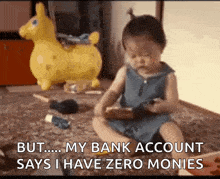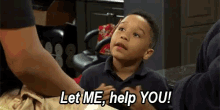Stop Paying Bank Fees
Do This Instead
As a Certified Financial Counselor and former Banker, I feel a duty to share solutions to the problems I see with my clients. Slow leaks of wealth are draining hardworking Americans’ wallets, and one culprit is bank fees. I can appreciate banks and the role they play in our lives - shoot, being a banker taught me a lot. But a successful relationship is one where both sides feel like they’re receiving real value.
If you are paying a bank every month just to touch your own paycheck, that is not “adulting.” That is a bill! And for a lot of folks, it is a bill they never even agreed to.
According to the FDIC (Federal Deposit Insurance Corporation) “Almost 14.1% of U.S. households (approximately 18.7 million adults) are underbanked, meaning they still use some fringe financial services.” Fringe financial services can be things like payday loans, pawn shops, check-cashing stores, rent-to-own, and prepaid cards with heavy fees. Essentially places people go when they need money fast. Yet they end up paying more in the longterm. “The Poor Tax.”
Bank on was created to provide safe and affordable banking options to improve financial stability of low to moderate income families. I always say in order to build financial security you need proper Banking Options. Below, we will talk about some small steps you can take now before 2026 comes. Now let me be clear: the banks aren’t entirely the issue, the lack of financial literacy is.
Until the end of the year, I’ll be dropping solutions and resources to everyday money problems I see in my Financial Glow Up Series.
Step one of your money glow up- Find the leak
Before we start to talk about budgets, side hustles, or investing, we have to handle something simple. The holes in our boat! This is something we can control. Now, before we try to row across the ocean-end up drowning half way, let's make sure our boat is solid.
Do me a favor and open your banking app or go to your local branch and request your bank statement.
Pull or ask for your last two or three statements. ( Need to look back at least 90-60 days ) This helps track patterns. Look for anything that says the following:
“Monthly maintenance fee”
“Service charge”
“Overdraft fee”
“NSF fee”
Add them up. That number is what I like to call the “Poor Tax”! You are paying every month or every time you make a mistake just to access the money you already earned. Now, I don't know about you, but I need every last bit of my money. I call it the “poor tax” because everyday people get penalized for not making enough money, and that isn’t right. With the right knowledge and resources, we can change that.
For some people, that is $10 to $15 a month. For others, it is $35 hits every time the account dips. That is grocery money. Gas money. Bill money. In this economy we need every penny.
What’s The Solution
There is a whole movement called Bank On that certifies checking accounts designed to be safe and affordable. To get that seal, an account has to be
Low to no cost,
Have no overdrafts fees
Come with normal features like a debit card, online bill pay, and direct deposit CFE Fund+1.
You should not need “perfect” money habits to avoid getting punished. Many big banks and credit unions already offer a Bank On–certified account. You can find them through the Bank On locator and open one online. https://joinbankon.org/accounts/
How to upgrade your account in three moves
Find the right account.
Look up Bank On–certified accounts in your city. Check for no overdraft fees and low or no monthly fee.
Or call your customer service at your current bank and tell them you would like an account with no fees. They will tell you how to avoid fees or what accounts fit your situations.If your current bank does meet your needs.
Open a new account, and switch your income. Move your direct deposit there. Do not close the old one yet. Let one full pay cycle hit the new account so you know it is working.Move your bills and shut the old leak down.
Change your auto-pays and bill payments to the new account. Once everything runs smooth for a month, close the fee-heavy account for good.
This could take you upwards of 3 hours if you open the new account in person or less if you opt to do everything online. Remember this is not about being bad with money. It is about refusing to pay rent on your own paycheck. For those of you who may owe another bank from past mis-haps many of the accounts on the Bank On network are second chance friendly. Meaning they understand things happen and you won't be penalized for it.
Resources for you to shop new Banks
Some of my personal favorite no-fee or Bank On–certified checking accounts
Chase Secure Banking https://personal.chase.com/personal/secure-banking
Key Bank Hassle Free Checking and Savings https://www.key.com/personal/checking/key-bank-hassle-free-account.jsp
TD Bank TD Essential https://www.td.com/us/en/personal-banking/checking-accounts/essential-banking/
Truist Confidence Account https://personal.chase.com/personal/secure-banking
Credit Union Accounts
Normally low to no fees, have great credit rates, and offer higher savings returns. They have many programs that are community focused. Find One Here
Bank rate - A site where you can compare and shop various accounts. https://www.bankrate.com/
If you’re paying fees just to bank, it’s time for an upgrade. Check your statement today, then use the tools I linked above to find a safer, low-fee account that actually respects your money. If you need support, I’m offering no-cost financial consultations every Tuesday and Thursday through the end of the year to help you start your new year off right.
Lets head into 2026 with new knowledge and a Fresh Start. 


